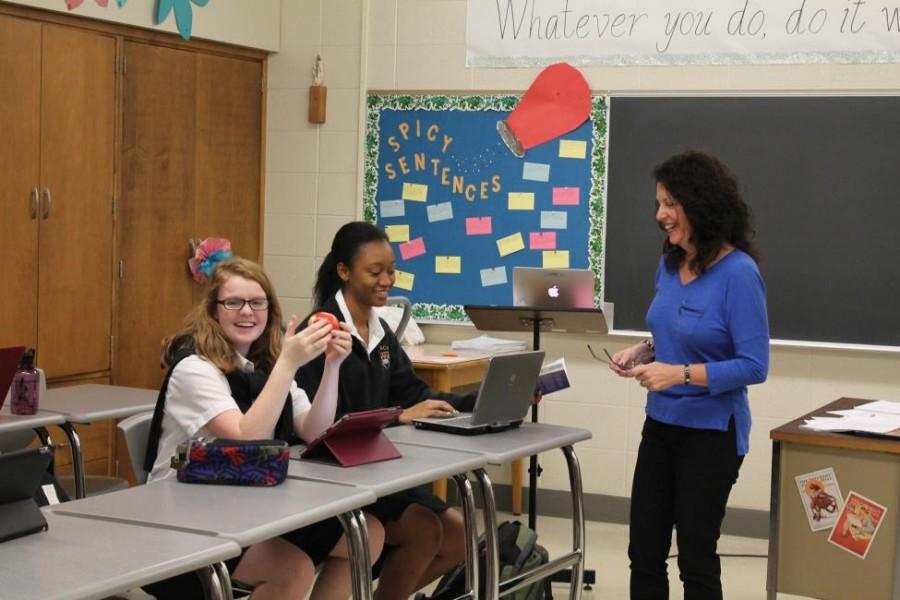Miriam, the Queen of Sheba, and Hillary Clinton: an inside look at Mercy’s Women in the Bible class
This list of names may seem like the beginning of a bad joke, or even one of those circle-the odd-one-out problems. However, in Ms. Sandra Mals’s Women in the Bible class, discussing and learning about these powerful women is a major component of the course. Ms. Mals is new to Mercy this year,. She previously taught theology at Regina for five years. She has put her own spin on her Women in the Bible class incorporating life-stories of famous women in the bible along with stories of the lives of modern-day and historical women leaders. The course is structured according to attributes of the women leaders, including units on women of wisdom, courage, friendship, and leadership.
“I think that it’s very important to learn about our biblical sisters,” said Ms. Mals. “Even though times, cultures, and circumstances have changed, the joys . . . hopes . . . dreams
. . . challenges and . . . struggles have remained the same.”
Students certainly haven’t objected to Ms. Mals’s unconventional approach to the course. Senior Lyndsay Archer enjoys the mix of modern-day and biblical women leaders.
“I like how [Ms. Mals] relates women in the bible to women today,” said Archer. “It’s easier to understand everything.”
A large part of the class revolves around students talking about the lives and actions of women they learn about. The class has even held a debate on the death penalty when learning about Sr. Helen Prejean, a champion of the right -to-life cause.
Junior Bridget Furlong, who participated in the debate, loves that the class is interactive and not confined to a textbook.
“It’s a great discussion class,” said Furlong. “It’s nice talking about stories of women that I didn’t know about, because you only hear about the men behind big events in history, even when the women were part of it too.”
Ms. Mals believes that this lack of recognition for women, both in biblical times and now, is a major problem.
“We have to dig deep sometimes to find out what [women’s] role[s] [were],” said Ms. Mals. “When we do dig, we find that without women, most of these events may not have taken place the way they did.”
So far, students have discussed biblical women like Sarah, Rebecca, the Queen of Sheba, and Miriam, as well as women like Malala Yousafzai, Hillary Clinton, Maya Angelou, and St. Joan of Arc. Ms. Mals encourages students to journal on the women they’ve learned about, and she commented that a personal connection is often made through reflection.
“You see qualities in yourself that you see in these people,” said Ms. Mals. “You learn about yourself.”

